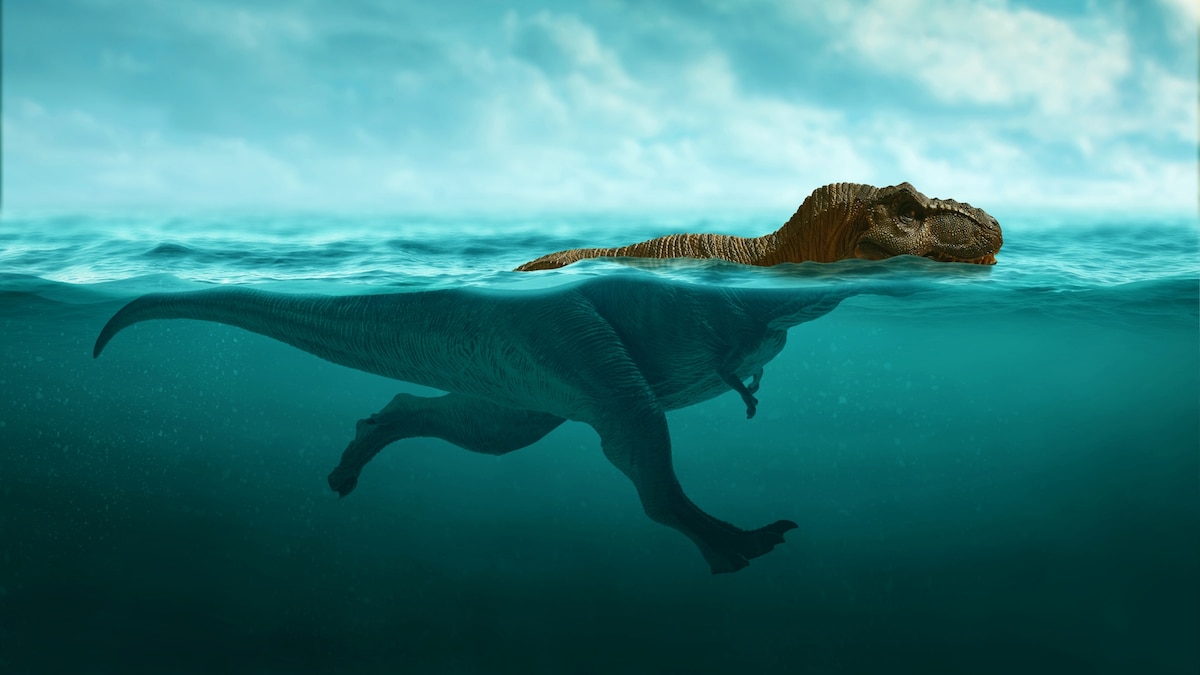Now Reading: Could T. rex Swim? Scientists Weigh In
-
01
Could T. rex Swim? Scientists Weigh In
Could T. rex Swim? Scientists Weigh In

Quick Summary
- Analysis from fossil evidence suggests that some theropod dinosaurs, including relatives of Tyrannosaurus rex, were capable swimmers.
- Paleontologists found swim tracks from smaller theropods at a 200-million-year-old site in Utah and similar traces in La Rioja, spain.
- Fossils indicate different types of swimming styles among theropods, resembling a primitive form of doggy paddle.
- current evidence does not directly show T. rex swimming but suggests it may have been able to navigate water using its legs due to air sac systems that aided buoyancy.
- Paleontologists believe T. rex waded or swam near the surface rather than diving, given its skeletal structure and relatively light weight for such a large animal.
- Models propose that shallow-water hunting might have helped T. rex catch prey escaping into lakes, but shoreline-hunting strategies remain speculative.
Indian Opinion Analysis
The evolving understanding of dinosaur locomotion offers insights into ancient ecosystems and predator-prey dynamics that shaped Earth’s biodiversity during the Mesozoic Era. Evidence suggesting theropod dinosaurs like Tyrannosaurus rex could swim enhances knowledge about their adaptability across varied terrains such as wetlands and floodplains. For India’s scientific community-which includes paleontology specialists working on fossil records found in Gujarat’s Kutch basin-studies like these highlight the importance of interdisciplinary approaches combining biological modeling with geological fieldwork.
India’s rich prehistoric record can benefit from global advancements in methods used for reconstructing species behaviour based on fossilized traces, aiding broader paleontological efforts here at home. Understanding how ancient animals adapted to aquatic environments may also shed light on ecological responses to shifting climates-a relevant topic even today as India addresses environmental conservation amid climate challenges.
























